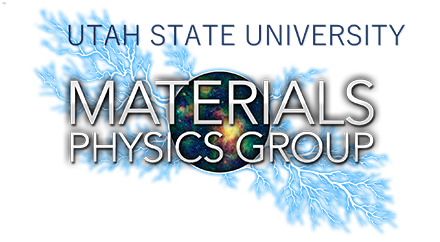Document Type
Article
Journal/Book Title/Conference
IEEE Transactions on Plasma Science
Author ORCID Identifier
Zachary Gibson https://orcid.org/0000-0002-3939-4321
J. R. Dennison https://orcid.org/0000-0002-5504-3353
Volume
51
Issue
9
Publisher
Institute of Electrical and Electronics Engineers
Publication Date
2-22-2023
First Page
2522
Last Page
2529
Abstract
The magnitude and spatial distribution of charge embedded in dielectric materials and the evolution of the charge distributions with time are paramount for the understanding and mitigation of spacecraft charging. Spacecraft materials are charged primarily by incident fluxes of low-energy electrons, with electron fluxes in the 10–50 keV range often responsible for the most deleterious arcing effects. While the pulsed electroacoustic (PEA) method can provide sensitive nondestructive measurements of the internal charge distribution in insulating materials, it has often been limited for spacecraft charging applications by typical spatial resolutions of ≤ 10 μm , with a 10- μm range of electrons in common spacecraft materials (e.g., polyetheretherketone (PEEK), polytetrafluoroethylene (PTFE), low-density polyethylene (LDPE), or SiO2) at incident energies from ~ 20 to ~ 40 keV. A series of PEA tests over a range of incident electron energies were devised to investigate the relevance of the PEA method for typical spacecraft charging applications. Thin-film samples of vacuum-baked PEEK were irradiated with 10–80-keV monoenergetic electron beams. PEA measurements of deposited charge profiles determined the peak positions and magnitude of deposited charge. These were used to establish the minimum incident energies for which PEA measurements provided meaningful results and thus to characterize the merits of PEA measurements over energy ranges of relevancy to spacecraft charging issues.
Recommended Citation
Z. Gibson and J. R. Dennison, "Relevancy of Pulsed Electroacoustic Measurements for Investigating Spacecraft Charging," in IEEE Transactions on Plasma Science, doi: 10.1109/TPS.2023.3244058.



Comments
© 2023 IEEE. Personal use of this material is permitted. Permission from IEEE must be obtained for all other uses, in any current or future media, including reprinting/republishing this material for advertising or promotional purposes, creating new collective works, for resale or redistribution to servers or lists, or reuse of any copyrighted component of this work in other works.